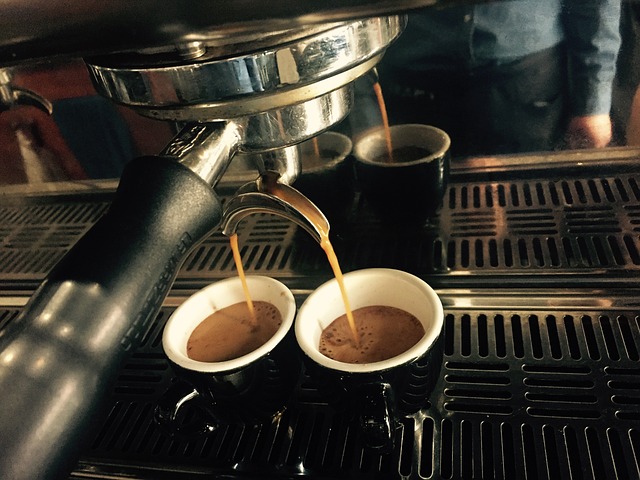Exploring Barista Training: Key Skills and Certifications for Aspiring Coffee Artists
Learning how to craft the perfect espresso or master the art of milk texturing takes more than just passion—it often begins with a structured approach to barista training. From foundational coffee knowledge to specialized certifications, many aspiring professionals explore different programs to build skills and stand out in the competitive world of coffee artistry. This guide outlines what people commonly look for in barista training, how various courses are designed, and what factors often influence the choice of certification paths.

What are the essential skills for aspiring baristas?
At the heart of any successful barista’s toolkit lies a set of fundamental skills. First and foremost, a deep understanding of coffee bean varieties, roasting processes, and flavor profiles is crucial. Aspiring baristas must also master the art of grinding coffee to achieve the perfect consistency for various brewing methods. Additionally, proficiency in operating and maintaining espresso machines is essential, as is the ability to steam milk to the ideal temperature and texture for different coffee drinks.
Beyond these technical skills, successful baristas need excellent customer service abilities, including clear communication, multitasking, and the ability to work efficiently under pressure. Time management and organization are also vital, especially during busy rush hours when multiple orders need to be prepared simultaneously.
How can barista certifications enhance your career?
Barista certifications can significantly boost your credibility and employability in the competitive coffee industry. These programs offer structured learning experiences that cover both theoretical knowledge and practical skills. The Specialty Coffee Association (SCA) offers one of the most recognized certification pathways, including modules on brewing, barista skills, and sensory analysis.
Other respected certifications include the Barista Guild of America’s certification program and the Coffee Quality Institute’s Q Grader certification. These certifications not only validate your skills but also demonstrate your commitment to the craft, potentially opening doors to higher-paying positions or management roles in specialty coffee shops and roasteries.
What are the key coffee brewing techniques to master?
Mastering various coffee brewing techniques is essential for any aspiring barista. The espresso machine is often considered the centerpiece of a barista’s toolkit, requiring precise control over factors like grind size, dose, tamping pressure, and extraction time. However, proficiency in other brewing methods is equally important.
Pour-over techniques, such as those used with V60 or Chemex brewers, demand careful attention to water flow and timing. The French press method requires understanding coarse grinds and steeping times, while cold brew necessitates knowledge of long extraction processes and dilution ratios. Mastering these diverse techniques allows baristas to cater to various customer preferences and showcase the nuanced flavors of different coffee beans.
Where can you find quality latte art training?
Latte art is often the crowning glory of a barista’s skill set, transforming a simple cup of coffee into a visually stunning work of art. Many barista school programs offer dedicated latte art training as part of their curriculum. These courses typically cover the fundamentals of milk steaming and pouring techniques, progressing to more complex designs like rosettas, tulips, and swans.
For those seeking specialized latte art training, workshops and masterclasses led by champion baristas are excellent options. These intensive sessions often focus on advanced techniques and provide personalized feedback. Online platforms also offer video tutorials and virtual workshops, allowing aspiring latte artists to practice and refine their skills from home.
What should you look for in barista school programs?
When evaluating barista school programs, several factors should be considered. Look for programs that offer a comprehensive curriculum covering all aspects of coffee preparation, from bean selection to latte art. Hands-on training with professional-grade equipment is crucial, as is the opportunity to practice in a simulated café environment.
The qualifications of the instructors are also important. Seek out programs led by experienced baristas or certified trainers who can provide industry insights and practical tips. Additionally, consider whether the program offers any form of certification or job placement assistance upon completion.
How much do barista training courses typically cost?
The cost of barista training courses can vary widely depending on the program’s length, depth, and location. Here’s a comparison of some popular barista training options:
| Program | Provider | Cost Estimation |
|---|---|---|
| SCA Barista Skills Program | Specialty Coffee Association | $1,500 - $2,500 |
| Barista Basics Course | Seattle Barista Academy | $495 - $695 |
| Professional Barista Course | New York Coffee Academy | $1,200 - $1,500 |
| Online Barista Course | Coffee Skills Program | $199 - $299 |
| Latte Art Workshop | Local Coffee Shop | $50 - $150 |
Prices, rates, or cost estimates mentioned in this article are based on the latest available information but may change over time. Independent research is advised before making financial decisions.
Investing in barista training can be a significant expense, but it’s often viewed as a worthwhile investment for those serious about pursuing a career in the coffee industry. Many programs offer payment plans or scholarships to make training more accessible. Additionally, some coffee shops provide on-the-job training or may sponsor employees to attend external courses, which can be a cost-effective way to gain skills and certifications.
Becoming a skilled barista requires dedication, practice, and a genuine passion for coffee. By mastering essential skills, obtaining relevant certifications, and investing in quality training programs, aspiring coffee artists can set themselves on a path to success in this dynamic and rewarding field. Whether you’re dreaming of creating Instagram-worthy latte art or aspiring to open your own specialty coffee shop, the journey of barista training offers endless opportunities for growth and creativity in the world of coffee.




